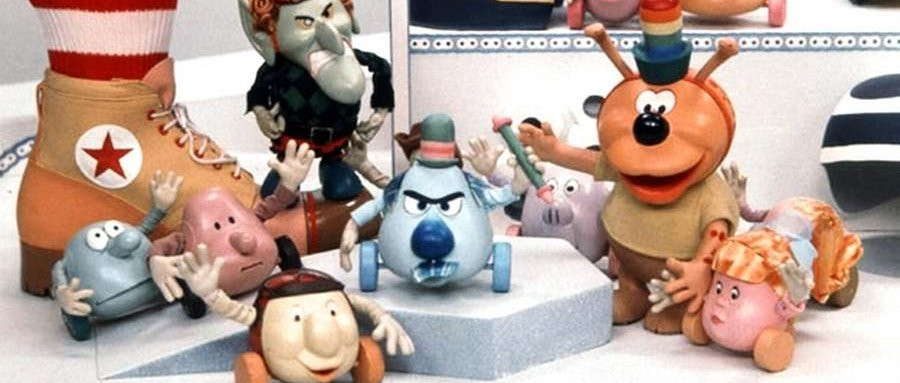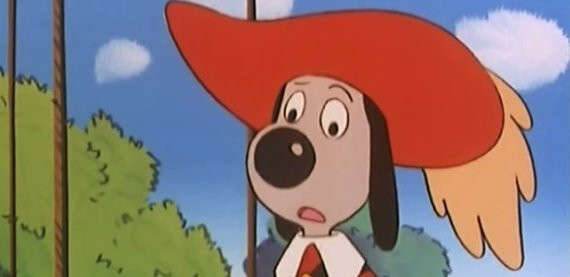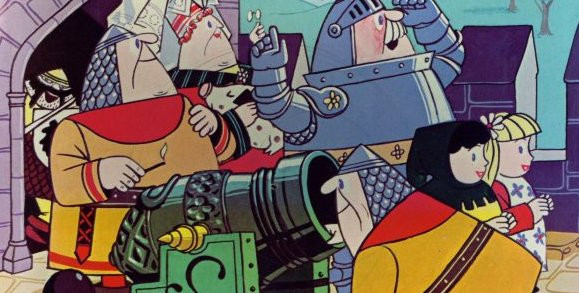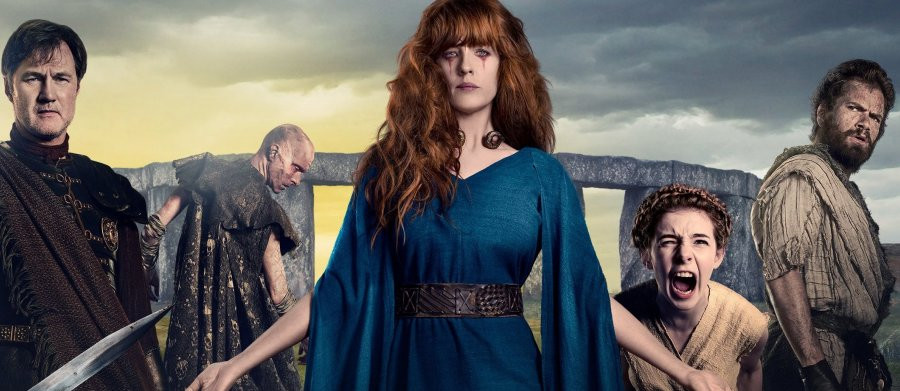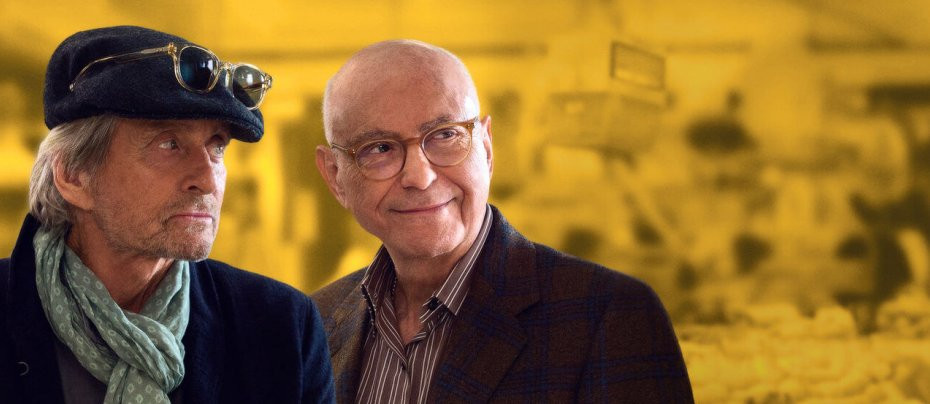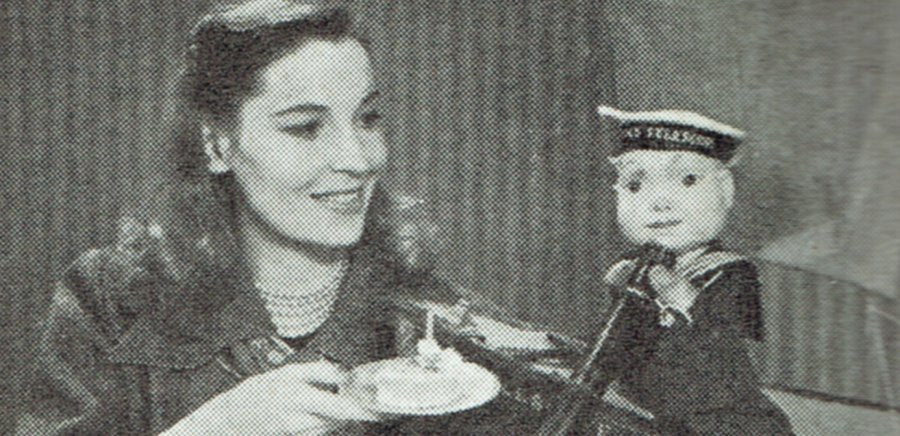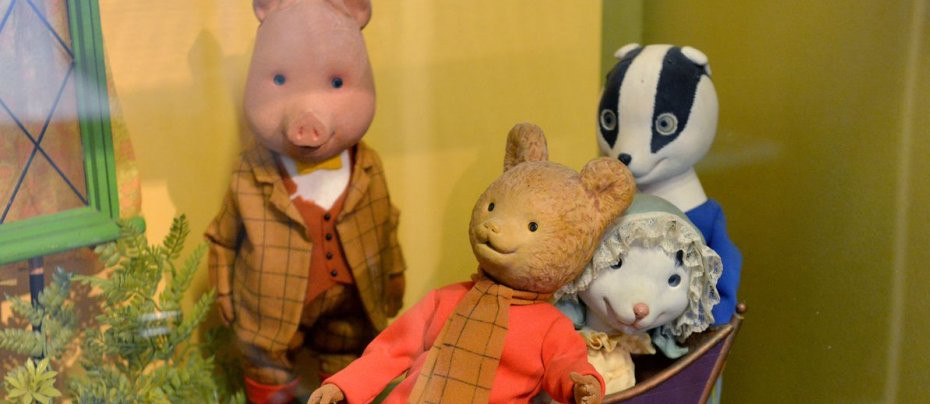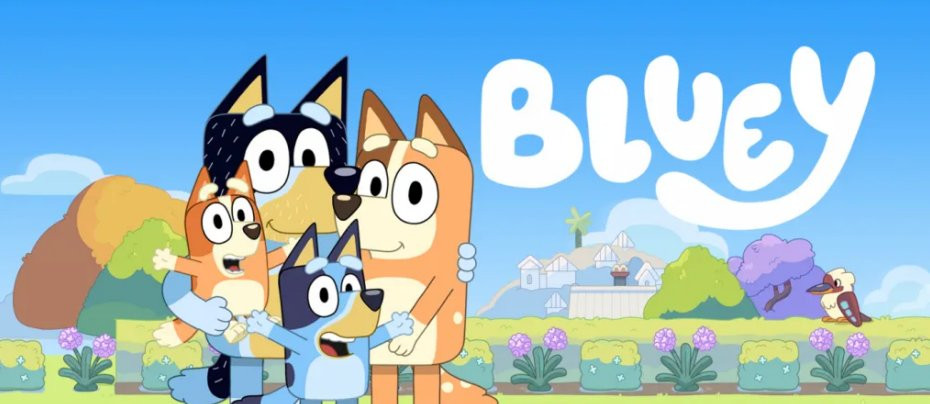
Bluey
2018 - Australia‘genuinely funny, with some brilliant dialogue’
Bluey review by Daniel Tessier
Every so often a children's show comes along that surpasses its remit to keep the kids distracted for a few minutes and becomes something greater. Bluey is perhaps the perfect example: a modern cartoon masterpiece that appeals equally to small children and their parents, it's become a bit of a phenomenon.

Created by Joe Brumm, who gained experience on British animated series including Charlie and Lola and the inescapable Peppa Pig, Bluey might be the most internationally successful television series since Neighbours. Returning to his home town of Brisbane, Brumm set up his own animation studio, Studio Joho, intending to make his own version of Peppa Pig, only with dogs instead of pigs (dogs are better than pigs, that's just a fact). He created a one-minute sample reel which was picked up by Ludo Studio, who helped expand it to a five-minute pilot episode. Both ABC and the BBC commissioned Ludo to create a full series of 52 seven-minute episodes, with the Beeb putting up 30% of the money in return for international distribution and merchandise rights. They obviously know a good thing when they see one. Since then, Disney has purchased the US broadcast and international streaming rights, expanding the show's audience further.
While Brumm intended Bluey to be the Australian Peppa Pig, it's a far better series. Inspired by his experiences in raising two daughters, he and his wife Suzy created a set-up which is a perfect recreation of a modern family, with the focus on learning and play.
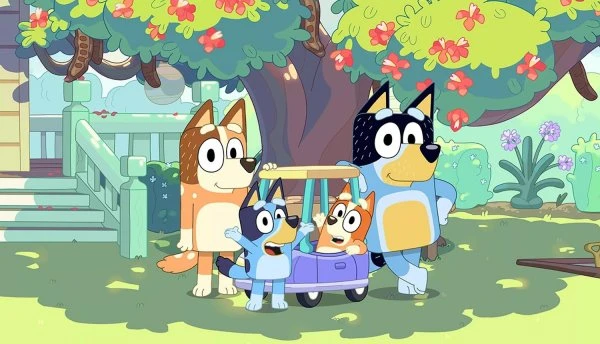
Bluey herself is a six-year-old Blue Heeler, a variety of Australian Cattle Dog or Queensland Heeler. Curious, intelligent, highly energetic and cheeky, Bluey is the central character, but there's plenty of focus on the rest of her family. Bingo, her four-year-old sister, is quieter, and more sensitive but equally energetic and playful (Bingo is easily my favourite character). The girls are raised by their parents, Bandit and Chilli Heeler. Bandit (voiced by David McCormack of the band Custard) is the fun parent, perhaps too keen to join in the girls' games, and eager to teach them even if he's a bit impractical when it comes to the details. His wife Chilli (Melanie Zanetti) is more level-headed but still joins in the games with little persuasion.
An aspect that has rightfully gained a lot of critical praise is the depiction of modern fatherhood, with Bandit being the primary carer for the kids for much of the run. Being an archaeologist, he works long stretches that are broken up by even longer periods at home, while Chilli works key time in airport security and is therefore at home less. They're both equally likely to be doing the household chores (although Bandit is more likely to be trying his hand at DIY). It's a great way of showing how modern families don't have to fit the traditional pattern still so often shown in such programmes (there are other families with divorced parents, adopted kids and other kinds of set-ups). The Heelers are a happy, loving family, and while Bandit and Chilli are flawed, making plenty of mistakes, they're clearly doing a cracking job of it. Bandit, in particular, is popular among dads (Bandit Heeler = dad goals).

The Heelers inhabit a kind of parallel universe version of Brumm's hometown of Brisbane, populated by dogs of all breeds. The Heelers have friends who are all kinds of breeds, with their differences celebrated and accepted. Part of the international appeal of the series is that it is so Australian; the scripts embrace modern Australian culture, a welcome antidote to the overwhelmingly American bulk of most internationally available children's programming. The additional and guest cast is largely made up of Australian comedians and musicians, all bringing their own style to their characters. Bandit's mum and his brother Stripe are voiced by Brumm's own mother and brother.
There have been some notable celebrity guests as well, including Hollywood stars such as Natalie Portman, Rose Byrne and Lin-Manuel Miranda, and a noteworthy appearance by Robert Irwin (presenter and conservationist son of the late Steve Irwin). Meanwhile, the younger characters are voiced by the production crew's own children, going uncredited to maintain their privacy. The quality of the child performances is one of the most impressive parts of the series, with the kids behind Bluey and Bingo particularly standing out.
Brumm brings his own experiences to his scripts, mixing aspects of his own family life with his fictional dog-dominated world. The characters combine identifiable personalities with canine traits, creating a surprisingly coherent animated universe (although why the Heelers are constantly doing laundry when none of them wear clothes, remains a mystery). Bluey and Bingo avoid stereotypically girly characteristics, with the boy and girl characters playing all sorts of games together. As well as having many dog breeds mixing, there's a decisive effort to be inclusive in real-world ways, including one character with ADHD, and another child who's deaf and communicates through sign. It's all sensitively approached, accepting that there can be a funny side to people's experiences with these conditions while also treating them with respect.

The stories are short but packed, emphasising learning through play, understanding responsibility and accepting differences, yet it's never preachy. It's also genuinely funny, with some brilliant dialogue enhanced by the cast's performances. Episode 2.22, “Bus,” is honestly one of the funniest episodes of anything I've seen in years. Episodes can enter more fantastic territory, blurring the lines between what's happening and what's imagined. As the series has gone on, it's become more experimental: 3.18, “Rain,” is largely dialogue-free, while 3.29, “Puppets,” breaks the fourth wall and see the characters encounter their own fictional nature (“That was a weird dream!”) 3.34, “Space,” as well as being a real tear-jerker dealing with anxiety and trauma, seems to be Bluey's version of the opening episode of Star Trek: Deep Space Nine, one of numerous genre-savvy references in the series. It doesn't look like kids can't keep up with the more out-there episodes, with audience responses remaining consistently good, but even the most down-to-earth episodes can be memorable. 2.39, “Double Babysitter,” is adorable; 2.42, “Bin Night,” is a moving episode that's primarily about taking out the bins; 1.15, “Butterflies,” is purely about learning to play together, and is perfect.
With over 150 episodes currently available, and more in the early planning stages for a future season, there's an awful lot of Bluey, which helps avoid the trap of it becoming too repetitive when watching with small children. Even so, there are few shows that can be happily watched over and over like this. Combining lovable characters, clever humour, inventive stories and lessons for both children and parents, Bluey deserves its reputation as one of the best children's programmes of the modern age.
Seen this show? How do you rate it?
Seen this show? How do you rate it?
Published on September 5th, 2023. Written by Daniel Tessier for Television Heaven.


